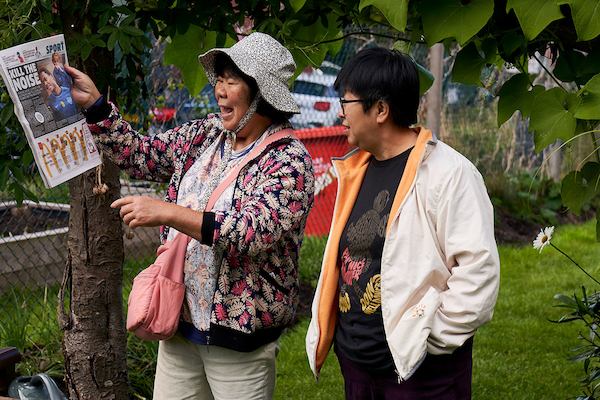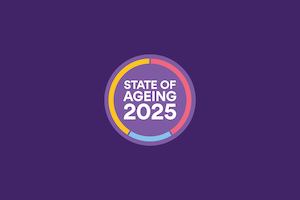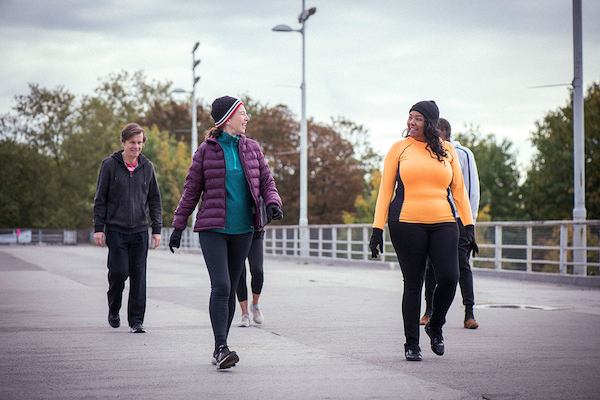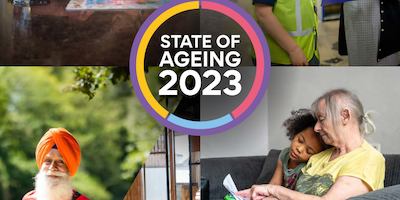England’s new regional leaders can lead the way in improving later life

Millions of people will go to the polls in May to decide who will lead a growing number of Mayoral and Combined Authorities.
These authorities have increasing powers and should be using those powers to level-up the inequalities faced by older people, argues our Strategic Partnership Manager Bianca Rossetti.
In May, voters in 10 regions of the UK will go to the polls to vote for a mayor covering the combined authority where they live. For three of these Mayoral and Combined Authority (MCA) areas – East Midlands, North Yorkshire, and much of the North East – this will be the first time that has taken place.
This growth, along with bigger “trailblazer” deals in Greater Manchester and West Midlands is part of a “widening and deepening” of devolution that the government signalled through a new funding package in the Autumn Statement last November. The individual deals that each MCA has negotiated offer a substantial funding injection, greater autonomy and new powers. Moreover, the elected leaders can also use their personal mandate to champion specific issues and otherwise influence the agenda for change in their region.
Why MCAs should focus on ageing
Following the elections, the twelve Mayoral and Combined Authorities will cover a population of 21.5 million people, representing nearly half of England’s population aged 50 and over. You can add to that the number of over 50s travelling into these regions for work, shopping and leisure, and also consider the fact that these numbers, and the median age of residents, are projected to increase in the years and decades to come. All told, the case for MCA leaders to ensure that their regions are great places to live, work, and spend time in mid and later life is clear.
MCAs’ funding settlements do have some strict parameters, which require them to focus on key themes including employment and skills, housing, transport, and economic development. As our recent State of Ageing Report demonstrates, all of these are areas where inequalities within older generations are an issue that, without meaningful action to address them, will only widen over time.
Workers aged over 50 are more likely to end up long-term unemployed if they fall out of work, due in large part to current models of employment support being inaccessible to them. Half of all non-decent homes in the UK are headed by someone aged 55 or over. The rapidly-growing cohort of over 65s living in private rented accommodation spend a greater proportion of their income on rent than every other age group apart from the under-25s. And though older people are more reliant on public transport to make their regular journeys, these is evidence that older passenger numbers are still significantly lower than they were prior to the pandemic.
Narrowing these gaps is vital to individuals, but also essential for MCA’s social and economic success. Those authorities which achieve outcomes such as retaining older workers longer, promoting volunteering opportunities for retirees, and creating environments that increase the numbers of older people using local businesses, or engaging in arts and heritage and leisure, will receive a social and economic boost that will benefit everyone.
What MCAs can do
Here are some of the ways that MCAs can use their funding streams and powers to respond to a growing ageing population and make the most of the opportunities such demographic change offers:
1. Skills and employment: Incentivise higher employment standards and pioneer new approaches to employment and skills support.
Both the West of England and Greater Manchester have developed good employment charters – an accreditation and guidance for employers in their respective regions who want to boost their workforce’s wellbeing, increase productivity, and reduce staff turnover. Both have promoted age-friendly practices as part of their charters, including flexible working, equal development opportunities, health support and reviews, and inclusive recruitment, with GM launching a toolkit specifically focused on older workers. GM has also explored new approaches to employment support for over 50s, with a new programme which launched this January.
2. Public services and tackling inequalities: Promote the uptake of benefits and other entitlements for older people on low incomes
An estimated 850,000 people above state pension age in the UK are missing out on vital financial support they are entitled to but don’t claim such as pension credit. Some local authorities have had significant success with awareness raising campaigns to encourage better uptake meaning the allocation of funding and resources to public information campaigns that can alleviate financial hardship. In Greater London, a campaign targeting 8,200 older households resulted in almost a quarter of those contacted now being permanently better off to the tune of an average £3,879 per year. Following the success of this first phase, Mayor Sadiq Khan has announced that he will be extending the campaign to include a total of 23 Greater London boroughs, which is expected to double the number of households getting more money in their pockets. In Greater Manchester, the Pension Top Up Campaign resulted in at least £3 million of additional income for older residents.
3. Economy, growth and culture: Reflect the significance of the ageing population in investment and service redesign.
MCAs who are looking to strengthen productivity and growth, and to transform their public services, should recognise the interests and contributions of their older residents as workers, volunteers, carers, and consumers. They are often the people most likely to ensure the viability of vital local shops and commercial spaces. North of Tyne (soon to become part of the North East CA) partnered with the locally-based National Innovation Centre for Ageing for a multi-million pound investment in local tech businesses designing products to improve health and independence in later life. This model, as with many of the possible ways of investing in age-friendly innovation such as accessible homes, provides multiple other benefits including creating good jobs.
4. Transport: Transform services for an ageing population.
One of the clearest signs of devolution in practice is the significant changes that mayors are making to ensure that public transport is more affordable, joined up, and reliable. Beyond the agendas of franchising and integration are opportunities to use transport budgets to increase the accessibility of older transport infrastructure, such as stops and platforms. Liverpool City Region has a vision for the most accessible rail fleet in the country, a plan the authority is working on alongside older people’s groups in the region, and West Yorkshire’s Streets for People programme is with local residents to create better spaces for walking and cycling, getting to and from public transport, and to spend time in.
5. Net zero and environment: Improve the most energy-inefficient and inaccessible homes for carbon savings and healthy ageing.
Investing in improving the energy efficiency and insulation of homes is a low-cost way to move towards reaching MCAs’ Net Zero targets, many of which are more ambitious than national government targets. This approach has the added bonus of creating tens of thousands of new jobs and billions in health benefits and healthcare savings. With older people more likely to live in energy-inefficient homes and often facing barriers to fixing them, this would improve life for older residents now and into the future. As our Triple Dividend report on home improvement shows, an investment of £625 million could improve the quality of 520,000 homes and deliver carbon savings equivalent to removing almost 500,000 petrol cars from the roads every year.
6. Data and digital: develop a digital inclusion strategy.
Digital technology can greatly benefit us all, but increasing digitisation that results in the exclusion of those least able to access online services can widen inequalities. Although the past decade has seen an almost 50% reduction in the number of adults who do not use the internet at all, and recent ONS data which showed the over-70s are the UK’s most online adults after twentysomethings, age remains one of the main denominators for people who are digitally excluded. Other characteristics that increase the likelihood of being digitally disadvantaged include being on a low income and being disabled. MCAs are well placed to develop strategies that leave nobody behind, through reducing economic and access barriers to making the most of the digital world and protecting face-to-face services.

What we can offer
We are committed to working with MCAs to realise their potential to make ageing better in England. Our strategic partnerships with local authorities and relationships with local and combined authorities have given us a strong understanding of the context. This includes the UK Network of Age-friendly Communities, which already includes London, Greater Manchester and Liverpool City regions, alongside networking between MCAs who are developing initiatives or a strategic vision on ageing.
We also have a number of models and initiatives that MCAs can engage with and adopt, such as our Age-friendly Employer Pledge or Good Homes Hubs. As part of our work around employment and skills. we are using research to develop principles for local economic strategies and commissioning approaches which better serve the needs of the over 50s population.
If you are working in or with MCAs, we are keen to support you. Contact us at [email protected]














